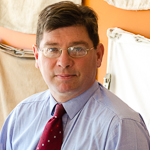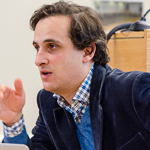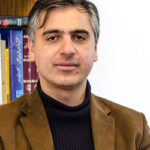Assisted dying: A Charter issue that demands a vote of conscience
Margaret Somerville, The Globe and Mail, February 24, 2016
 Prime Minister Justin Trudeau seems to be fond of whipping. He once criticized the Conservatives for whipping out Canada’s CF-18s in the Middle East, and the jets have since been whipped back home. Earlier this month, Liberal House Leader Dominic LeBlanc said coming legislation on doctor-assisted dying would be a whipped vote, but last week he backtracked, saying a decision on whether to whip the vote (that is, force all Liberal MPs to toe the party line) will not be made until after the law is drafted.
Prime Minister Justin Trudeau seems to be fond of whipping. He once criticized the Conservatives for whipping out Canada’s CF-18s in the Middle East, and the jets have since been whipped back home. Earlier this month, Liberal House Leader Dominic LeBlanc said coming legislation on doctor-assisted dying would be a whipped vote, but last week he backtracked, saying a decision on whether to whip the vote (that is, force all Liberal MPs to toe the party line) will not be made until after the law is drafted.
Mr. LeBlanc initially used the “Charter cloak” – the need to vote “to uphold Charter rights” – to defend a whipped vote and shift responsibility for legalizing euthanasia to the Supreme Court of Canada, with Parliament’s role simply to endorse the court’s decision of last year. “The Supreme Court has made the decision. It’s our role to support that,” Liberal Whip Andrew Leslie said last week. But it appears that after some Liberal MPs questioned whether it is a true Charter of Rights and Freedoms issue or rather one of conscience, the decision to whip the vote was postponed. Read the full OpEd here…
EU Summit: “Migrants in Europe have become fair game” – UN rights expert François Crépeau
 Report from the UN Human Rights Office of the High Commissioner, February 18, 2016
Report from the UN Human Rights Office of the High Commissioner, February 18, 2016
As the European Union summit started in Brussels, the United Nations Special Rapporteur on the human rights of migrants, François Crépeau, warned that it has become impossible in Europe to have a meaningful discussion about migrant’s rights, diversity, and integration.
Mr. Crépeau called on the leaders of the 28-nation bloc gathering on 18-19 February to halt the continuous regression of the human rights of migrants as Europe struggles to deal with its migrant crisis. In his appeal, the Special Rapporteur reiterates the key messages of his 2015 report on the management of the external borders of the EU and its impact on the human rights of migrants*.
Read the full news article: http://www.ohchr.org/EN/NewsEvents/Pages/DisplayNews.aspx?NewsID=17060&LangID=E
François Crépeau: Des milliers de demandeurs d’asile emprisonnés au Canada
Ici Radio-Canada – 16 février 2016
Alors que des milliers de réfugiés syriens sont accueillis à bras ouverts au Canada, d’autres demandeurs d’asile reçoivent un accueil bien différent. Chaque année, l’Agence des services frontaliers du Canada (ASFC) emprisonne plus de 4000 demandeurs d’asile, dont des centaines d’enfants. Le professeur François Crépeau, qui est Rapporteur spécial des Nations unies pour les droits des migrants, rappelle que, dans bien des cas, la détention est contraire au droit international.
Lire l’article et voir la vidéo: http://ici.radio-canada.ca/regions/ottawa/2016/02/16/005-demandeurs-asile-emprisonnement-canada-nations-unies.shtml
Frédéric Mégret: Les frappes russes en Syrie sur des hôpitaux et des écoles
 Radio-Canada International, 16 février 2016
Radio-Canada International, 16 février 2016
Le 16 février 2016, le professeur Frédéric Mégret a été interviewé avec le professeur Charles-Philippe David (U. de Montréal) par Anne-Marie Dussault sur l’émission télévisée 24|60 de Radio-Canada International.
“La trêve semblait à portée de vue, mais ces frappes ont changé l’allure de la guerre. La Turquie songerait à une intervention militaire terrestre en Syrie. L’ONU parle d’un crime de guerre, ce que la Russie dément.”
On peut regarder l’échange ici: http://www.radio-canada.ca/widgets/mediaconsole/medianet/7437542 (le segment débute à 31:24)
Forgotten Yazidis: The case for investigating genocide
 Payam Akhavan, The Star, February 15, 2016
Payam Akhavan, The Star, February 15, 2016
Professor Payam Akhavan is establishing a truth commission into crimes against Yazidis. He explains why it’s important in this interview with Olivia Ward.
“We need to address the suffering of the victims and uncover the truth as an important element of transformation for a country in the grip of sectarian violence and brainwashing.
Human rights are one of the most powerful antidotes to violence by the factions that are ripping the region apart. It’s a culture war. The only long term means of survival for the region is to counter this inverted morality where murder, rape and religious hatred have become normalized. The voices of the victims can remind people of the importance of human dignity. And that it is simply wrong to treat people this way.”
Read the full interview: http://www.thestar.com/news/world/2016/02/15/yazidis-in-iraq-the-case-for-investigating-genocide.html
Cultural genocide: When we debate words, we delay healing
Payam Akhavan, OpEd in The Globe and Mail, February 10, 2016
“What is “cultural genocide” and why does it matter? This powerful label was first adopted by the Truth and Reconciliation Commission (TRC) last June. It was meant to describe a colonial assimilationist policy, aimed at extinguishing Canada’s indigenous peoples “as distinct legal, social, cultural, religious, and racial entities.”
The long-suffering survivors of the residential schools celebrated this declaration with rapturous applause. But what followed was a storm of controversy on whether “genocide” was an appropriate term for this purpose; a controversy that has distracted us from confronting the reality facing Canada’s indigenous peoples.”
Read the full article: http://www.theglobeandmail.com/opinion/cultural-genocide-when-we-debate-words-we-delay-healing/article28681535/
